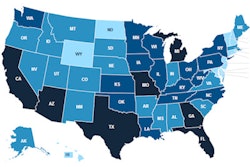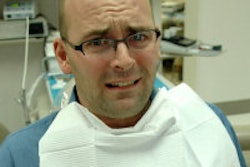
A Florida bill designed to simplify the children's dental Medicaid program would carve out $200 million from the state's overall Medicaid program and place it into one dedicated to dental.
HB 27, introduced by Rep. Jose Felix Diaz (R-Miami) and recently approved by the House of Representatives Health & Human Services Committee by a vote of 11-6, would create "a Medicaid prepaid dental program [to] be established, on a statewide basis in all counties, separate and apart from the Medicaid managed medical assistance program."
The state's Medicaid managed care system is set to be put into place next month, and bundles dental care and its $200 million budget with the rest of the program. Overall, Florida's Medicaid managed care system has an overall budget of more than $22 billion. Some contend that the move would simplify the program, while others claim that it serves primarily to protect the interests of Miami-based Managed Care of North America (MCNA) Dental and DentaQuest, the two companies that handle the lion's share of dental Medicaid subcontracts.
"This bill is supported by the Florida Dental Association, but no doubt MCNA and DentaQuest are also lobbying hard to maintain their control over the vast majority of Medicaid pediatric dental services even though it has been a mess," explained Scott Tomar, DMD, MPH, DrPH, a professor at the University of Florida School of Dentistry, in an email to DrBicuspid.com.
“Dental and medical benefits are best kept separate.”
and general counsel, MCNA Dental
"We're supporting the bill because we want to keep dental separate," said Terry Buckenheimer, DMD, Florida Dental Association (FDA) president, during an interview with DrBicuspid.com. "We're concerned about it being wrapped into the medical plan."
Those concerns are shared by MCNA Dental. "It's been demonstrated time and again in multiple states that dental and medical benefits are best kept separate," Carlos Lacasa, MCNA Dental's senior vice president and general counsel, told DrBicuspid.com.
"Medical HMOs rarely do dental: They subcontract it to dental plans such as ours, Delta Dental, DentaQuest, etc., and keep a piece of the premium paid to them by the states as an extra administrative layer," he said.
A DentaQuest representative told DrBicuspid.com that the company has not lobbied on the matter and will wait and see what course the Florida government takes. “DentaQuest is focused on the continuation of dental services under the delivery structure that we are asked to operate within, which after October 2014 is Managed Medical Assistance," the company explained in a statement.
The bill keeps in place an existing 85% spending requirement, meaning that 85¢ of every dollar has to be spent on direct dental care, while 15% is permitted for administrative costs. If the full 85% is not spent on direct dental claims, the money must be returned to the state. Both the FDA and MCNA Dental support the requirement, while the latter contends that it would actually be improved if the dental benefits were carved out.
"In the case of the [overall] health plans, they also have an 85% spend requirement, but it's not at the dental level, it's at the top," Lacasa said. "They can spend 85% on primary and acute, chronic healthcare and less than 85% on dental, and still satisfy their contractual requirements. That's exactly what's going to happen. Many predict, I predict, that premium dollars that would have gone to dental will go to subsidize losses in hospitalization and skilled nursing facilities, the two most expensive costs in medical."
Lacasa contended that a carveout could also increase access to care. “Dental and medical are fundamentally different areas of practice: medical plans strive to keep you out of the doctor, hospital, or nursing home if they can while in dental, we try to keep kids in the dental chair and are constantly doing outreach to get them to receive these services,” he said. “The state needs to make sure that the money is spent on dental so we can pay our providers on a fee schedule and incentivize them to participate, particularly in rural areas.”
Detractors also state that yet another change in Medicaid will create unnecessary confusion among patients who have already dealt with a shifting landscape. "They've already been sort of confused as it has gone from fee-for-service to the Medicaid managed care plans," Dr. Buckenheimer said. "Unfortunately, a lot of people were taken away from some of the providers because of those plans. So we're hoping once it's separated we'll have more continuity for patients."
Lacasa similarly acknowledged Medicaid consumers have had to deal with a lot of changes and that confusion is inevitable. But he also believes that it would improve under the bill. "The confusion will be resolved once the state gets it right. The members in MCNA will remain in MCNA whether they're integrated or not," he said. "Plus, the Medicaid population is a very transient one -- eligibility changes frequently. Sometimes you're in or out depending on your financial situation. I don't see confusion being a significant issue."
Right now, the bill could proceed. It was placed on the Senate calendar on April 7 where Dr. Buckenheimer sees some support, but Lacasa believes there is more. "We've had a lot of success in the membership of the House and Senate," Lacasa explained. "We've passed every committee we've ever been assigned to."
Passage, however, is far from guaranteed. "The only problem we've had for two years, consistently, is getting Florida Senate President Don Gates to agree to let the bill be put to a vote," Lacasa added. "He knows perfectly well that the membership would pass it in the blink of an eye."
Dr. Tomar is wary of what is motivating Florida politicians to support the bill, given the state's track record with Medicaid and dentistry. "Governor Rick Scott vetoed the meager appropriations last year for dental student loan repayment for dentists will to serve as Medicaid providers in designated health profession shortage areas," he noted. "We have the lowest rate of dentist participation in the nation and the lowest proportion of Medicaid-insured children receiving dental services, and I remain skeptical that the state of Florida is really committed to improving that situation."



















